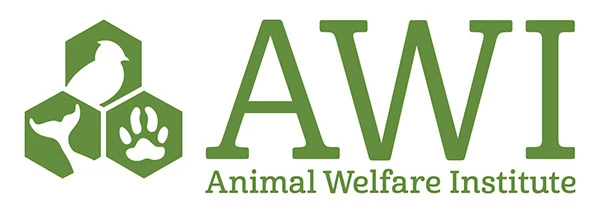
Enhancing Real Estate Education Through Technology
The Role of Technology in Enhancing Real Estate Education
Introduction
The integration of technology in real estate education marks a pivotal shift in how industry knowledge is conveyed and understood. In an era where digital advancements redefine numerous sectors, real estate education is no exception. This evolution is critical for the industry, bringing forth new methodologies and tools that enrich learning experiences. These technological enhancements not only modernize the educational landscape but also align it more closely with the evolving demands of the real estate market. From interactive video content to the incorporation of augmented reality, these tech-driven approaches are preparing students and professionals for a future where technology and real estate are increasingly intertwined.
Integration of Video Content
Video content has become a cornerstone in modern real estate education, aligning with the visual and interactive nature of the industry. This multimedia approach offers several advantages:
Real-World Scenarios: Videos can vividly demonstrate real estate concepts by depicting actual properties, market scenarios, and client interactions. This helps bridge the gap between theoretical knowledge and practical application.
Engagement and Understanding: Visual content tends to be more engaging and easier to comprehend, especially for complex topics. Video tutorials, walkthroughs, and expert interviews can make learning more dynamic and accessible.
Flexibility in Learning: Video content allows students to learn at their own pace, revisiting complex sections as needed. This flexibility is crucial for adult learners who often balance education with work and other responsibilities.
Diverse Learning Styles: Catering to different learning styles, videos can combine visual elements, text, and audio, making them an effective tool for a wide range of learners.
Incorporation of Latest Market Trends: Videos can be updated regularly to include the latest market trends and technological advancements in real estate, ensuring that the education material remains current and relevant.
Incorporating video content into real estate education represents a shift towards a more interactive and practical learning approach, essential for preparing students for the realities of the real estate market.
Mobile Technology in the Classroom
The infusion of mobile technology into real estate education represents a significant leap forward in interactive and accessible learning. Here's how mobile devices are revolutionizing the educational experience:
Enhanced Accessibility: Mobile devices allow students to access course materials, lectures, and resources anytime, anywhere. This portability is especially beneficial for real estate professionals who are often on the move.
Interactive Learning Apps: Educational apps like Poll Everywhere and Kahoot! are becoming integral tools in real estate education. These apps facilitate interactive quizzes, surveys, and polls, making learning more engaging and participatory.
Real-Time Collaboration: Mobile technology enables students and educators to collaborate in real-time. Apps and platforms facilitate discussions, group projects, and peer-to-peer learning, essential for understanding complex real estate scenarios.
Virtual Property Tours: Through mobile devices, students can take virtual tours of properties, a crucial aspect of real estate training. This technology provides an immersive experience, allowing students to explore different types of properties and understand market variations.
Access to Up-to-Date Information: Mobile devices ensure that students have access to the latest industry news, market trends, and regulatory changes. This is vital in an industry where current knowledge is key to success.
Personalized Learning Experience: Mobile technology allows for a personalized learning experience, catering to individual learning speeds and styles. Students can customize their learning paths, focusing on areas that require more attention.
Incorporating mobile technology in real estate education aligns with the modern demands of the industry, providing a versatile and practical approach to learning that prepares students for the digital age of real estate.
Emerging Technologies in Real Estate Education
The integration of emerging technologies like augmented reality (AR), virtual reality (VR), and artificial intelligence (AI) is significantly enhancing real estate education:
Augmented Reality (AR) and Virtual Reality (VR):
Immersive Learning Experiences: AR and VR are revolutionizing real estate education by providing immersive experiences. These technologies enable virtual property tours, giving students a realistic view of different types of properties and architectural designs without leaving the classroom.
Interactive Simulations: AR and VR offer interactive simulations for understanding complex real estate concepts, such as property development, urban planning, and interior design.
Artificial Intelligence (AI) and Predictive Analytics:
Personalized Learning: AI is being used to create personalized learning experiences in real estate education. It analyzes student performance and tailors content to address individual learning needs.
Market Analysis and Predictions: AI and predictive analytics tools are incorporated into educational programs to teach students how to analyze market trends, predict property values, and make data-driven decisions.
Enhancing Practical Skills:
These technologies are not just theoretical; they equip students with practical skills that are increasingly relevant in the modern real estate industry, bridging the gap between classroom learning and real-world application.
Preparing for the Future:
By integrating these technologies into the curriculum, educational institutions are preparing students for a future where digital competencies are integral to the real estate profession.
The adoption of AR, VR, and AI in real estate education mirrors the industry's broader digital transformation, ensuring that new professionals are well-equipped for the technological advancements reshaping the field.
IoT and Smart Home Training
The rise of the Internet of Things (IoT) and smart home technology is a game-changer in the real estate industry, making their understanding crucial in modern real estate education:
Understanding IoT and Smart Homes: As smart homes become more prevalent, real estate professionals need to understand IoT technology, its benefits, and implications. This includes knowledge of smart home devices, automation systems, and how they enhance home functionality and value.
Training and Coursework: Real estate education programs are increasingly incorporating IoT and smart home technology into their curriculum. Training often covers how these technologies impact home management, energy efficiency, security, and overall property value.
Market Differentiation: Understanding smart home technology can be a significant market differentiator for real estate professionals. It equips them to advise clients on the latest technology trends in home buying and selling, and to market properties with these features effectively.
Security and Privacy Concerns: Education on IoT also involves training on the security and privacy aspects of smart home technologies. This is vital as concerns about data privacy and security are becoming increasingly important to consumers.
Sustainability and Efficiency: IoT and smart home technologies play a crucial role in driving sustainability and efficiency in homes. Real estate courses are teaching how these technologies contribute to eco-friendly living and can be used to attract environmentally conscious buyers.
By integrating IoT and smart home training into real estate education, professionals are being prepared to meet the evolving demands of tech-savvy buyers and sellers in the real estate market.
Data-Driven Property Management Education
In the realm of real estate education, the emphasis on data-driven property management is increasingly prominent, reflecting the industry's shift towards more analytical and informed decision-making:
Role of Data Analytics: Data analytics tools are critical in today's property management sector. They allow for the analysis of market trends, property valuation, tenant preferences, and operational efficiencies. Real estate education programs are incorporating these tools to teach students how to gather, analyze, and use data effectively.
Real-Time Market Insights: These tools provide real-time insights into property performance, market dynamics, and customer behavior. This real-time data is invaluable for property managers in making informed decisions about pricing, marketing, and property improvements.
Predictive Analytics for Decision Making: Education on predictive analytics is becoming essential. It involves training students to use historical data to predict future market trends, tenant turnover, and property maintenance needs, enabling proactive management.
Customizing Tenant Experiences: Data analytics are also used in customizing tenant experiences and improving tenant retention. By understanding tenant behavior and preferences, property managers can tailor services and amenities to meet their needs.
Risk Management and Investment Strategies: Training also focuses on using data analytics for risk management and developing sound investment strategies. This includes analyzing market risks, investment potentials, and devising data-driven strategies for property portfolios.
Technology Integration in Coursework: Real estate education programs are integrating technology platforms that offer hands-on experience with data analytics tools. This practical approach helps students to apply theoretical knowledge in real-world scenarios.
Incorporating data-driven property management into real estate education ensures that emerging professionals are equipped with the skills and knowledge to navigate a market increasingly driven by data and analytics.
Sustainability and Green Technology
The incorporation of sustainability and green technology in real estate education reflects a growing awareness of environmental issues and their impact on the industry:
Growing Emphasis on Eco-Friendly Practices: With increasing focus on environmental sustainability, real estate courses are now incorporating topics related to green building practices, sustainable development, and eco-friendly property management.
Understanding Green Technologies: Students are being educated about green technologies such as energy-efficient appliances, solar panels, and sustainable building materials. This knowledge is crucial for advising clients on the benefits and implications of green features in properties.
Impact on Property Value and Marketability: Educators are highlighting how sustainable practices and green certifications can enhance property values and marketability. They are teaching the importance of these features in appealing to environmentally conscious buyers and tenants.
Regulatory Frameworks and Incentives: Real estate programs are also covering the various regulatory frameworks and incentives related to green building. This includes understanding local, state, and federal regulations and how they impact property development and management.
Case Studies and Practical Applications: Many courses are incorporating case studies of successful green buildings and sustainable developments. This approach provides students with practical examples of how sustainability is implemented in the real estate sector.
Future Trends in Sustainable Real Estate: Students are being prepared to anticipate and adapt to future trends in sustainable real estate, equipping them to play a role in driving the industry towards more environmentally responsible practices.
Incorporating sustainability and green technology into real estate education is essential in preparing a new generation of real estate professionals who are not only skilled in traditional practices but are also adept at integrating environmental considerations into their work.
The Impact of Remote Work and Co-Living Spaces
The rise of remote work and the growing popularity of co-living spaces are reshaping the landscape of real estate education:
Remote Work Influencing Property Demand: The shift towards remote work has altered the demands in the housing market. Real estate education now includes understanding how remote work influences property preferences, such as the need for dedicated home office spaces and the value of properties in suburban areas.
Co-Living Spaces and Market Dynamics: Co-living spaces, which offer shared living with private bedrooms, are becoming a significant trend. Real estate courses are incorporating insights into managing these properties, understanding market demands, and the legal and logistical aspects of co-living arrangements.
Technology's Role in Management and Marketing: With the rise of these trends, technology's role in property management and marketing has grown. Education programs are teaching the use of digital tools for managing remote work-friendly and co-living properties, including virtual tours and online leasing processes.
Investment Opportunities and Challenges: These trends also bring new investment opportunities and challenges in the real estate market. Students are learning about the financial models of co-living spaces, the investment potential of properties suitable for remote work, and the challenges associated with these investments.
Preparing for Future Trends: Real estate education is also focusing on preparing students for future trends. As remote work and co-living evolve, professionals need to be adept at adapting to these changes and leveraging them for real estate development and investment strategies.
The integration of remote work and co-living spaces into real estate education reflects the industry's response to evolving living and working trends, ensuring that upcoming professionals are equipped with the knowledge and skills to navigate this changing landscape.
Cybersecurity in Real Estate Education
In an era where real estate transactions and management increasingly rely on digital platforms, cybersecurity has become a critical component of real estate education:
Increasing Digitization in Real Estate: As the industry embraces digital transformation, with online transactions, digital contracts, and virtual property tours becoming commonplace, the need for robust cybersecurity measures has intensified.
Educational Focus on Cybersecurity: Real estate courses now include modules on cybersecurity, teaching students about the potential risks and vulnerabilities in digital real estate practices. This includes understanding phishing attacks, malware, and securing online transactions.
Data Privacy and Protection: Training also emphasizes the importance of protecting client data. Real estate professionals handle sensitive personal and financial information, making knowledge of data privacy laws and best practices essential.
Risk Management Strategies: Students learn about developing and implementing risk management strategies to protect against cyber threats. This includes regular updates of security protocols and employee training on recognizing and responding to cyber threats.
Technology and Compliance: With increasing regulatory scrutiny on data privacy, real estate education is equipping students with knowledge about compliance with laws like GDPR and CCPA, which have implications for the real estate sector.
Impact on Trust and Credibility: As cybersecurity incidents can significantly damage a firm's reputation, education programs highlight the importance of cybersecurity in building and maintaining trust with clients.
Incorporating cybersecurity into real estate education reflects the industry's commitment to safeguarding digital processes and client information in an increasingly online world.
Conclusion
The evolving role of technology in real estate education is a reflection of the broader digital transformation impacting the industry. As we've explored, from the integration of video content and mobile technology in classrooms to the use of emerging technologies like AR, VR, and AI, the landscape of real estate education is undergoing a significant shift. Understanding IoT, smart home technologies, and the importance of cybersecurity has become imperative in preparing students for the challenges and opportunities of the modern real estate market.
Educational institutions and educators are tasked with the crucial role of not only keeping abreast of these technological advancements but also effectively integrating them into their curriculums. For students, staying updated with these technological trends is vital for their success in an industry that is becoming increasingly reliant on digital tools and platforms.
The emphasis on sustainability and green technology, along with the impact of remote work and co-living spaces, further underscores the need for a comprehensive and forward-looking approach to real estate education. These elements, coupled with the growing reliance on data analytics in property management, are shaping a new breed of real estate professionals who are tech-savvy, adaptable, and equipped to meet the demands of a rapidly evolving market.
As we look to the future, the intersection of technology and real estate education will continue to deepen, offering exciting opportunities for innovation, enhanced learning experiences, and better preparation for the real-world challenges of the real estate industry. This evolution is not just about adopting new tools but also about fostering a mindset that embraces change, innovation, and continuous learning. For those entering or currently navigating the real estate profession, the ability to leverage technology will be a key determinant of success.
WE OFFER OVER
25+
PROGRAMS
WE HAVE SERVED
12000+
STUDENTS
VETERAN STAFF
40+ Years
INDUSTRY EXPERIENCE
PROUDLY PROVIDING
23+ Years
OF EDUCATION
INLAND REAL ESTATE SCHOOL, INC. SUPPORTS

Campus Visiting Hours by appointment only:
1st-18th each month AM times, M-F
19th-end of the month PM times, M-F
Visiting hours need to be scheduled in advance
Not affiliated with The Inland Real Estate Group of Companies, Inc. and “The “Inland” name is a registered trademark being used under license”
OAK BROOK, ILLINOIS 60523. © INLAND REAL ESTATE SCHOOL, INC. A PROFESSIONAL LEARNING INSTITUTE, INC. COMPANY, 2010. ALL RIGHTS RESERVED.
NOT AFFILIATED WITH THE INLAND REAL ESTATE GROUP OF COMPANIES, INC. THE INLAND NAME IS USED UNDER LICENSE. Privacy Policy








